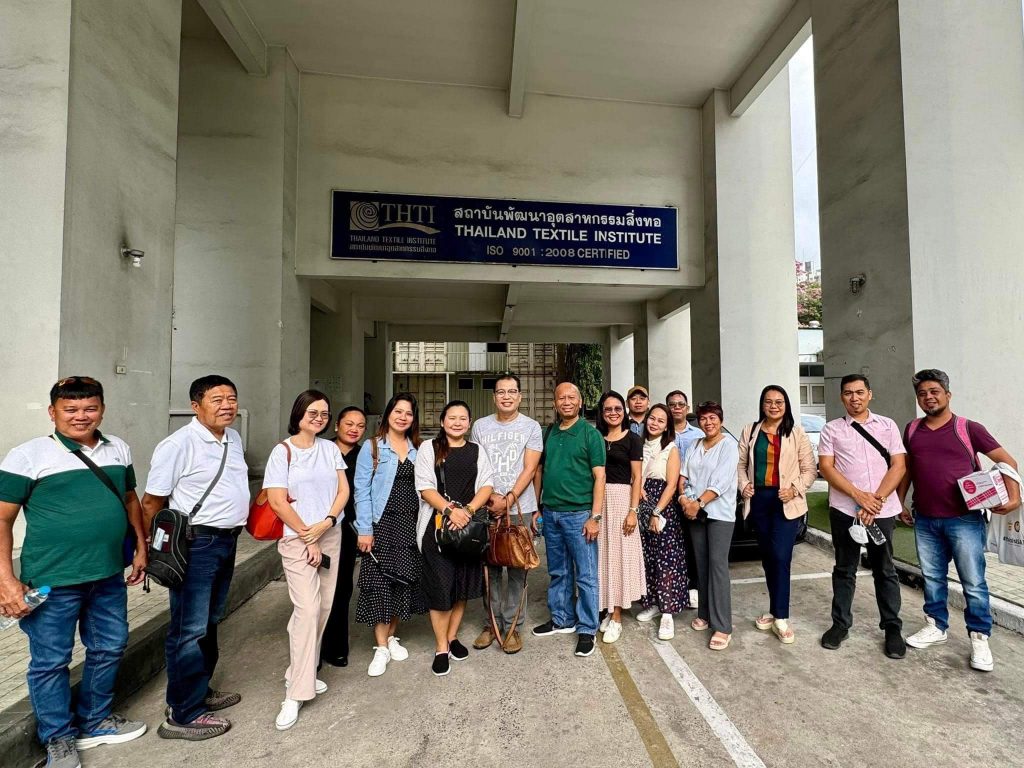
ISAT U President Dr. Gabriel M. Salistre Jr. led a delegation on a visit to Kasetsart University’s Department of Textile Science, Faculty of Agro-Industry in Thailand from March 12 – 16, 2024.
The primary objective of this visit was to explore potential collaborations and knowledge-sharing opportunities to enhance ISAT U’s upcoming Textile Technology Academic Program. This initiative is part of a broader project funded by the Department of Science and Technology (DOST) in the Philippines, which aims to strengthen the textile industry and promote sustainable practices in the region.
During the visit, President Salistre Jr. and the ISAT U delegation had the opportunity to engage with leading experts and researchers from Kasetsart University’s Textile Science Department. They discussed potential areas of cooperation, including faculty and student exchanges, joint research projects, and curriculum development.
“This partnership with Kasetsart University represents a significant step forward in our commitment to providing world-class education and fostering innovation in the textile industry,” stated President Salistre Jr. “By leveraging the expertise and resources of a renowned institution like Kasetsart, we can ensure that our Textile Technology Program is aligned with global standards and equips our students with the skills and knowledge to drive sustainable practices in the industry.”
The DOST project, which facilitated this visit, also included participants from DOST Provincial Field Officers, partner State Universities and Colleges (SUCs) such as Capiz State University and Aklan State University, as well as community partners like weavers from Miag-ao, Iloilo, and suppliers of raw materials for the Regional Yarn Production and Innovation Center (RYPIC) from Passi City and Lemery, Iloilo.
Through this collaborative effort, ISAT U aims to establish a robust Textile Technology Academic Program that not only meets international standards but also addresses the specific needs and challenges of the local textile industry, promoting sustainable practices and fostering economic growth in the region.